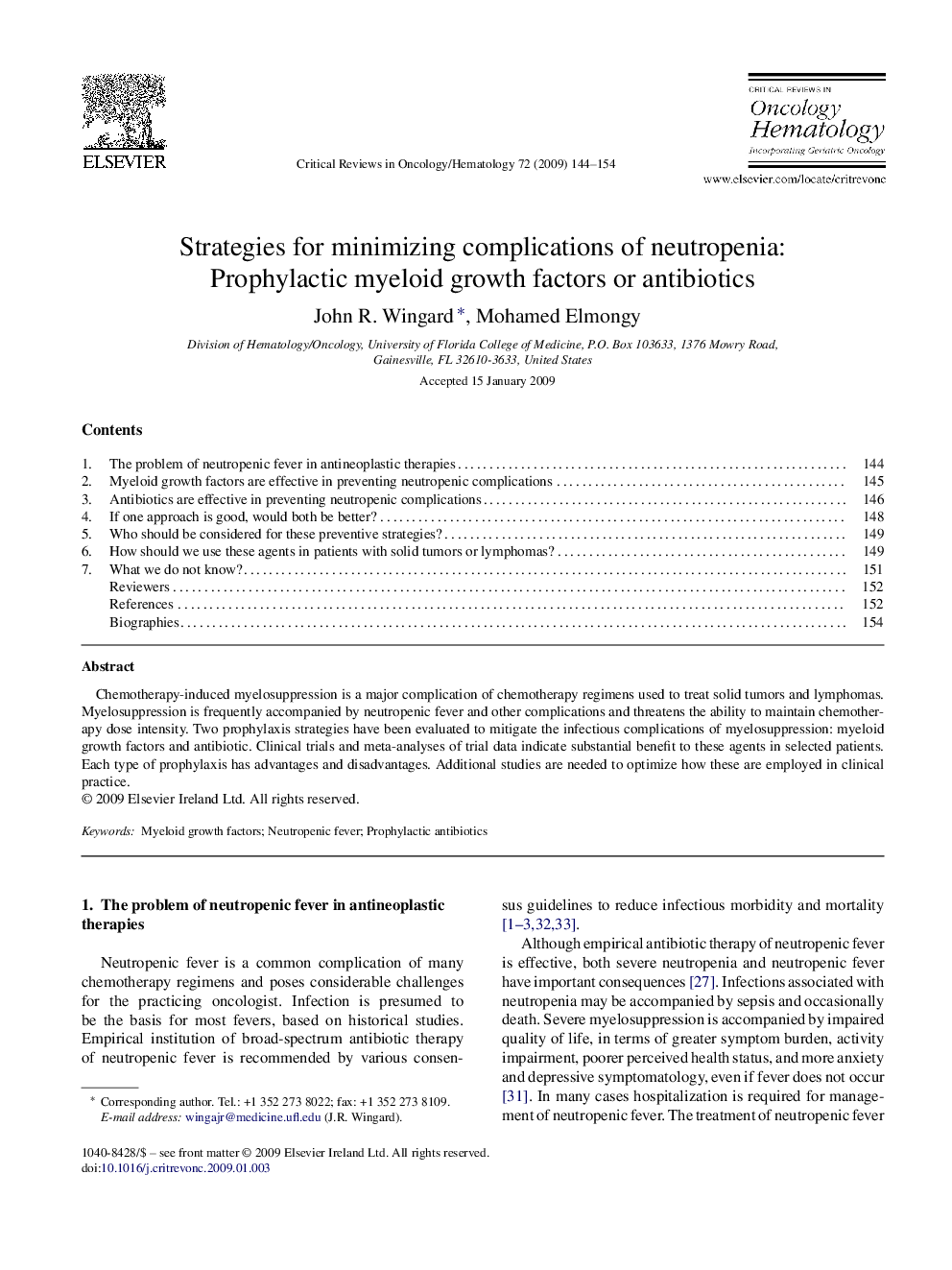| Article ID | Journal | Published Year | Pages | File Type |
|---|---|---|---|---|
| 3329440 | Critical Reviews in Oncology/Hematology | 2009 | 11 Pages |
Abstract
Chemotherapy-induced myelosuppression is a major complication of chemotherapy regimens used to treat solid tumors and lymphomas. Myelosuppression is frequently accompanied by neutropenic fever and other complications and threatens the ability to maintain chemotherapy dose intensity. Two prophylaxis strategies have been evaluated to mitigate the infectious complications of myelosuppression: myeloid growth factors and antibiotic. Clinical trials and meta-analyses of trial data indicate substantial benefit to these agents in selected patients. Each type of prophylaxis has advantages and disadvantages. Additional studies are needed to optimize how these are employed in clinical practice.
Related Topics
Health Sciences
Medicine and Dentistry
Hematology
Authors
John R. Wingard, Mohamed Elmongy,
